Traveling solo offers a unique chance for self-discovery and world exploration, but Luke (@sailing_songbird) took it to a new level when he sailed to what he calls the “most isolated place on Earth.” Luke regularly shares travel updates on his TikTok, but his latest clip has left viewers feeling a little unsettled.
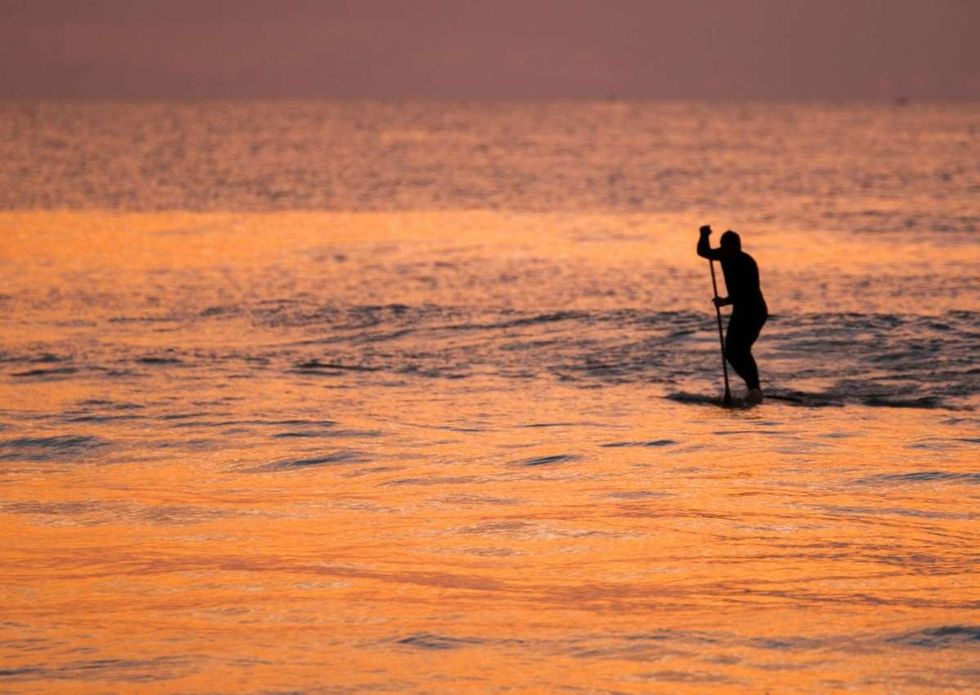
Luke, a former music teacher at Washington Middle School in Seattle, quit his job to embark on a solo journey across the Pacific Ocean. After a month at sea, he posted a now-viral TikTok clip, racking up over 34 million views and nearly 45,000 comments.
The clip shows him standing amidst bobbing waters as he tells his viewers about his remote location, while also pinpointing it on Google Maps. “It is month one, day 31 of sailing across the Pacific Ocean alone,” he said in the video, adding that he was filming the clip from his paddleboard that was inflatable. “I’m stuck here in the doldrums, there is no wind,” he continued.
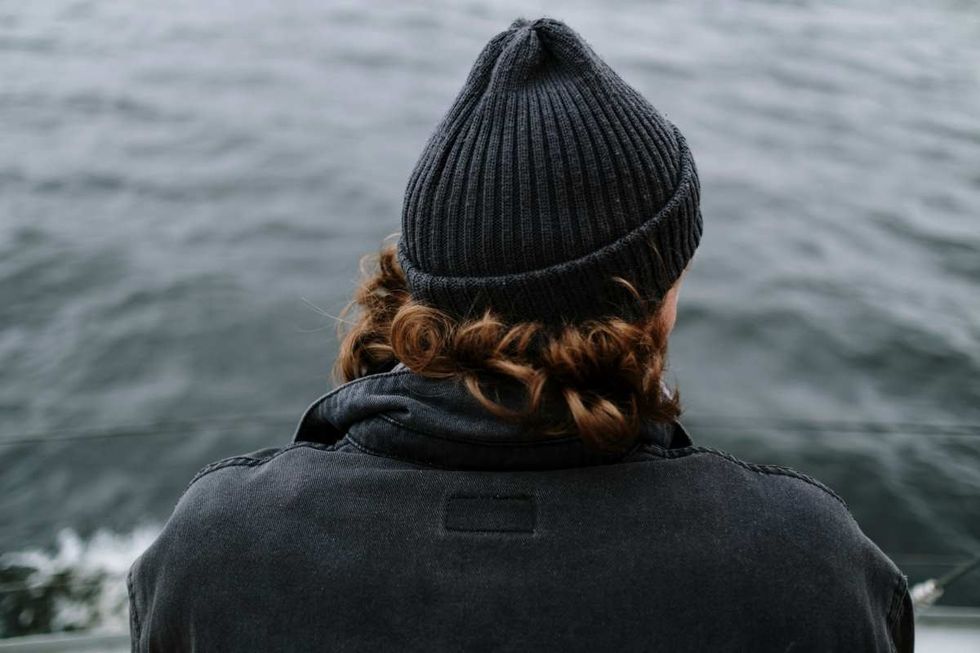
In the short clip, he also described how he was feeling "incredibly disorientating to be out on a paddleboard with nothing on the horizon except a super cool sunset." He related the remoteness of his location, which is a bit creepy, "For reference, I'm about as far away from land as you can be on this planet," he said, calmly. “I am well over 1,000 miles away from any piece of land, and it is so quiet. This definitely feels like one of the more incredible things I'm privileged enough to experience.”
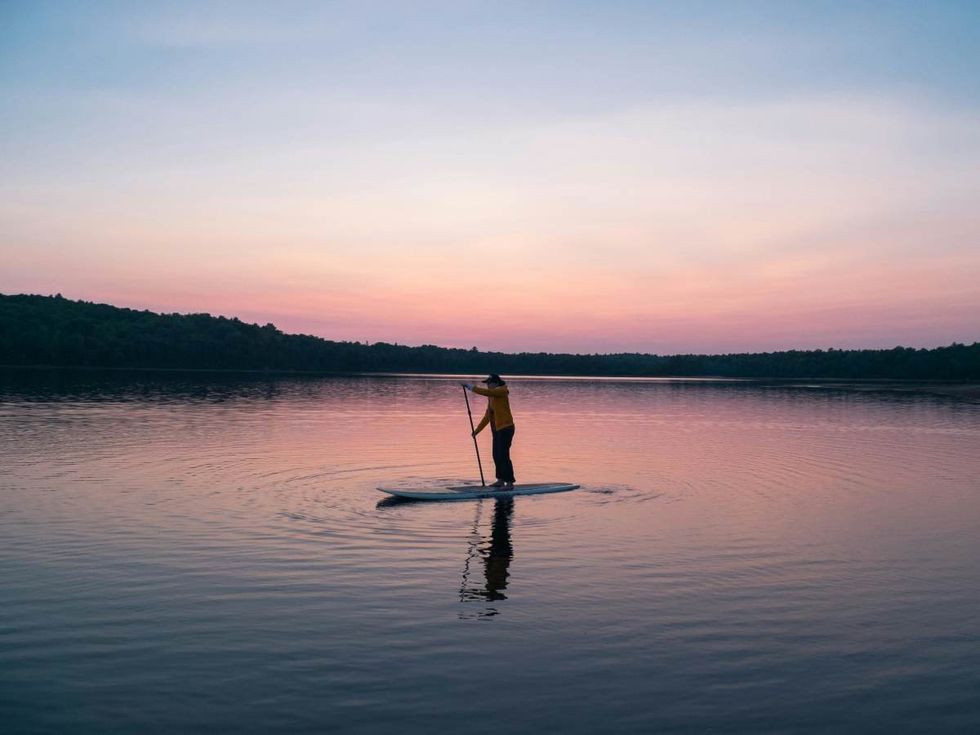
The video got many people freaked out. Some of them even questioned why he had to do such a dangerous thing. “Literally just learned about Point Nemo and that's all I can think about watching this. Get back to your boat sir,” commented @tiffanyrutherford8. @vendriss added, “As long as you don't end up at Point Nemo, there's always hope.” @drhasrespect said it was “kinda haunting.”

Point Nemo, which these TikTokers are talking about, is the location in the ocean that is farthest and the most distant from land. A person can't get farther away from land than this point, explains NOAA. Even more so, Point Nemo is the “most isolated place on Earth,” as per Ceros. There’s nothing to see at Point Nemo except for a vast expanse of churning waters that stretch endlessly in all directions. The point has been featured in Lovecraft’s novels which depicted that underneath this point was the home of monster Cthulhu. This point, also dubbed the “graveyard of space junk,” is 2.5 miles deep.
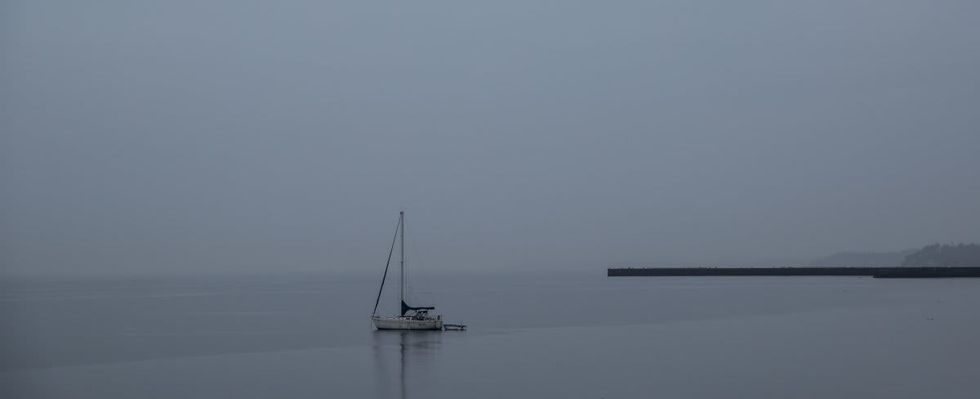
“Aren’t you afraid a shark or like Cthulhu is gonna come grab you,” said @10bnanacrmpies. @redrobin042 added, “How are you not terrified! You don’t know what’s under you?”

However, being stuck in the middle of the ocean with just an inflatable paddleboard, that too when dusk was arriving, was enough to make people plead with him to get back to his boat. Many people said they were having panic attacks just watching him.

At the same time, several others saw the video with a hilarious angle. They joked about how he was getting his phone charged, and how his Wi-Fi service was so strong in such a distant location. “Man's uploading from the Pacific Ocean and I'm losing network in my bathroom,” grumbled @loopyalright. @jaileen.m quipped, “Bro just learned he has free will.” @rrrrraniiiii said, “The best thing about sailing across the Pacific Ocean alone is that you do not have to do it.”

On Instagram too, where the clip was reposted, people urged him to “get back to the boat.” @notmarcanthony commented, “Scariest video I’ve ever seen.” @jen_the_lyon cautioned him, “Imagine what is under you!”
After the dramatic episode, it was learned that Luke had safely returned from the creepy point, going by the updates he shared on his Instagram profile.
@sailing_songbird So disorienting with nothing on the horizon 🤯 #sailing #solosailor #paddleboard
You can follow Luke on TikTok and Instagram for updates on his solo travels.
This article originally appeared two months ago.





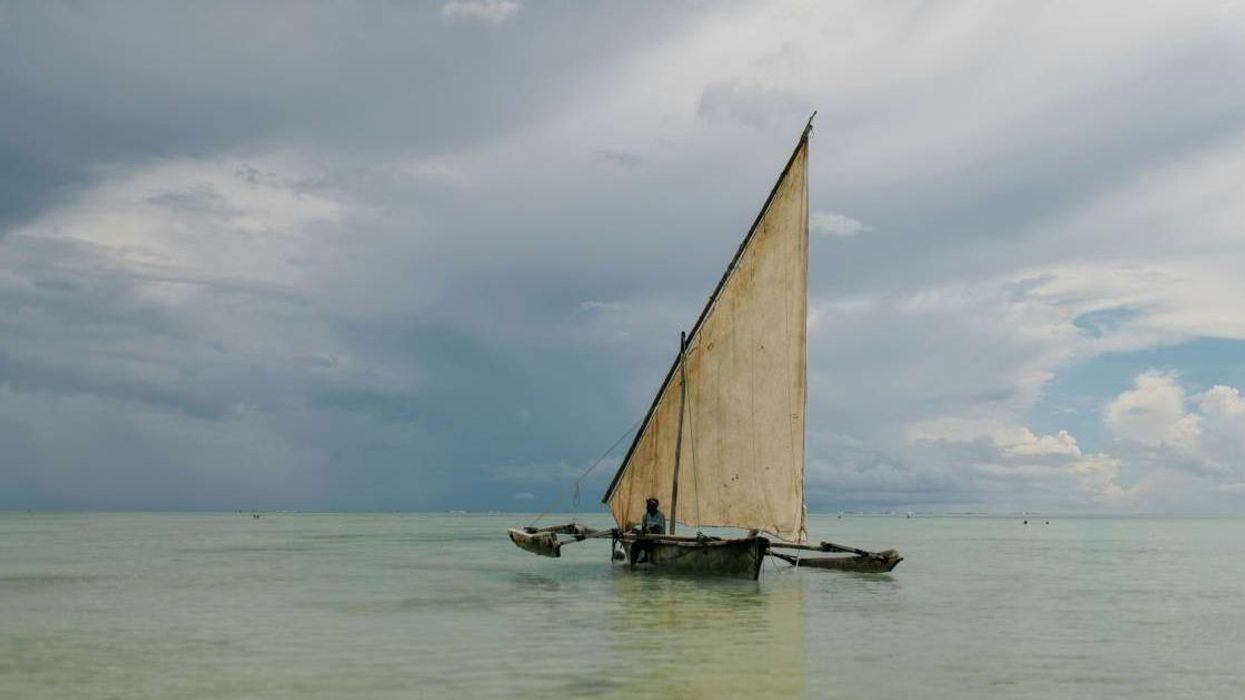












 Representative Image: Accents reveal heritage and history.
Representative Image: Accents reveal heritage and history.  Representative Image: Even unseen you can learn a lot from an accent.
Representative Image: Even unseen you can learn a lot from an accent. 
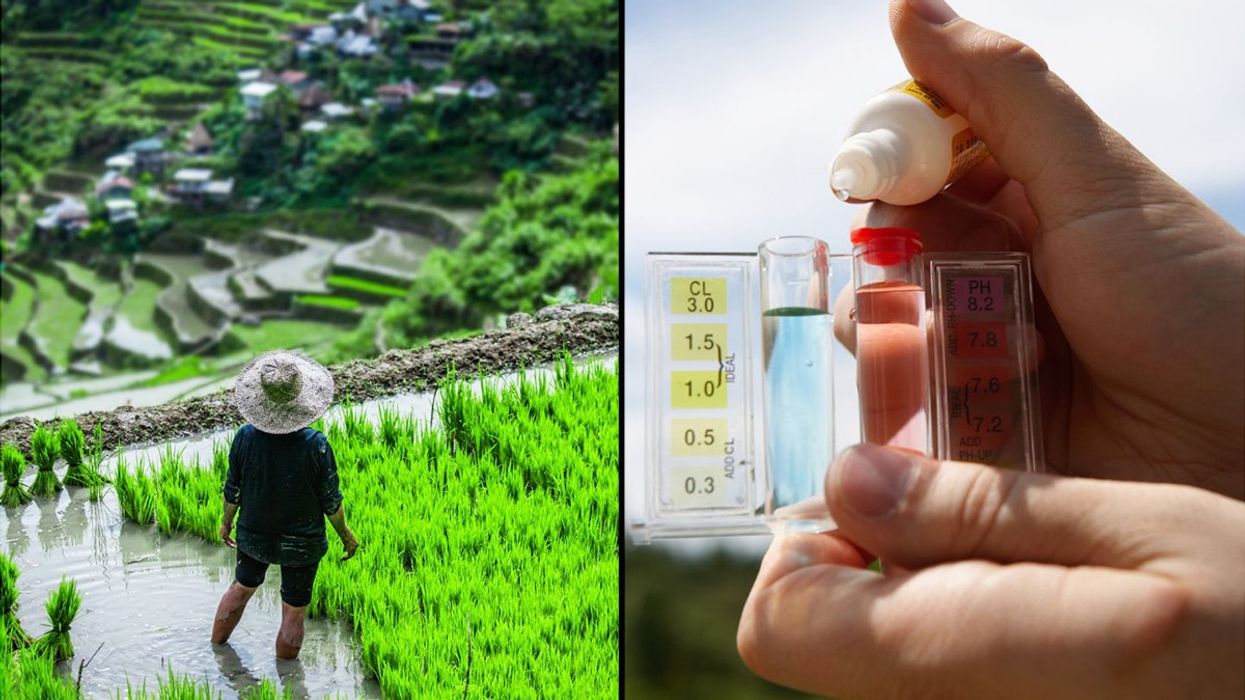
 Rice grain and white rice.Image via
Rice grain and white rice.Image via  Person eats rice.Image via
Person eats rice.Image via  Washing and rinsing rice.
Washing and rinsing rice.  Mother and daughter eating rice meal.Image via
Mother and daughter eating rice meal.Image via 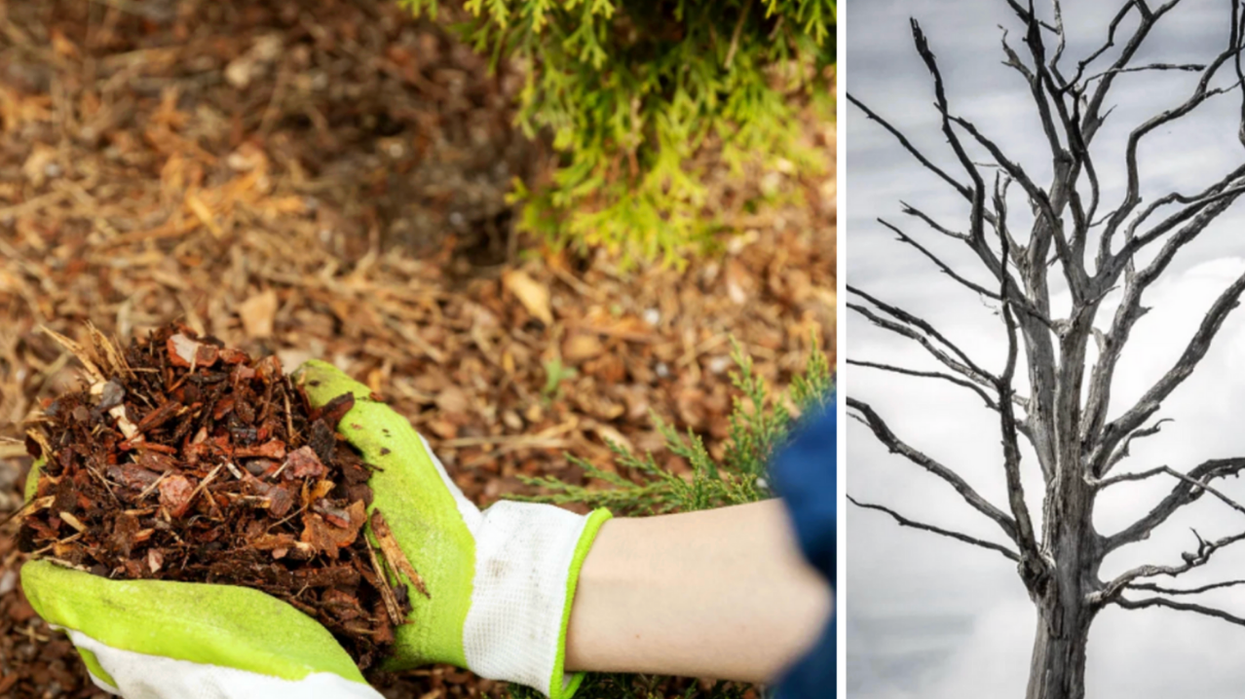

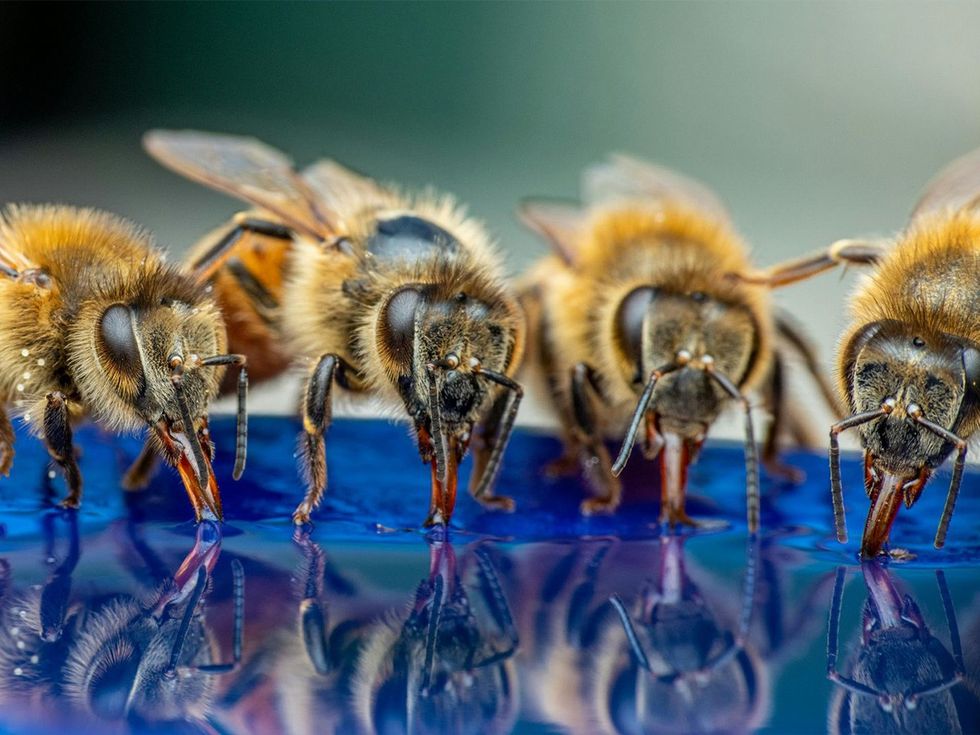 Bees feeding on food source.Image via
Bees feeding on food source.Image via 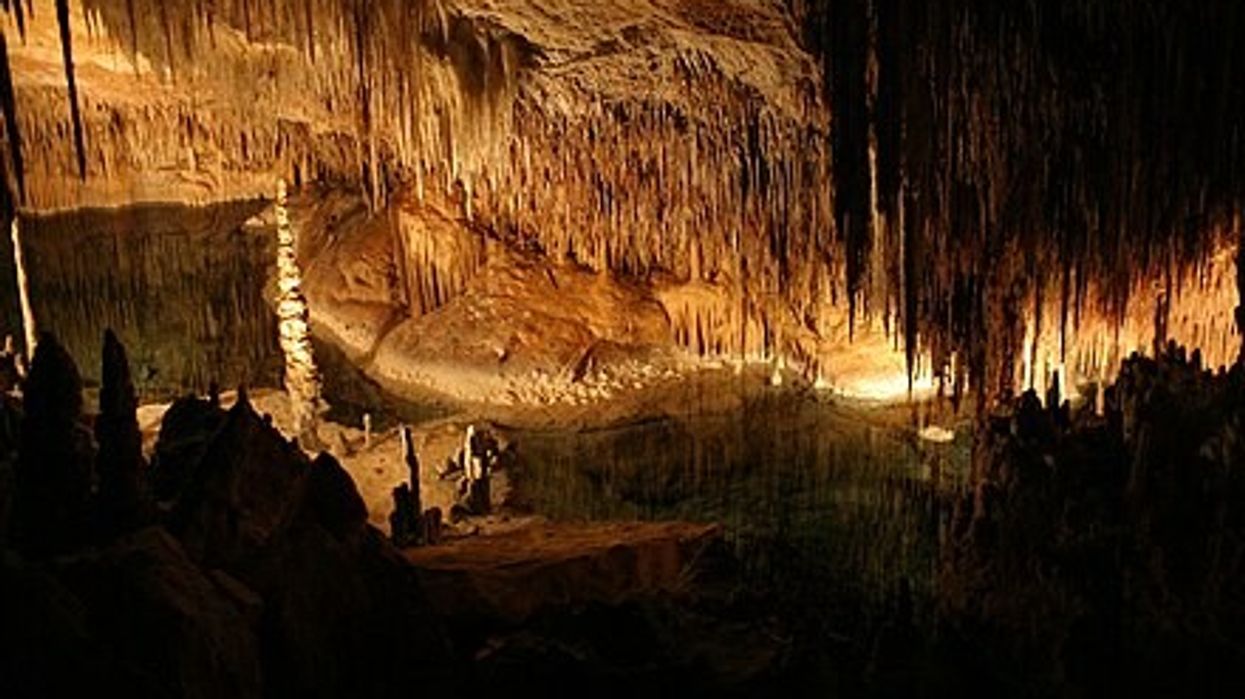
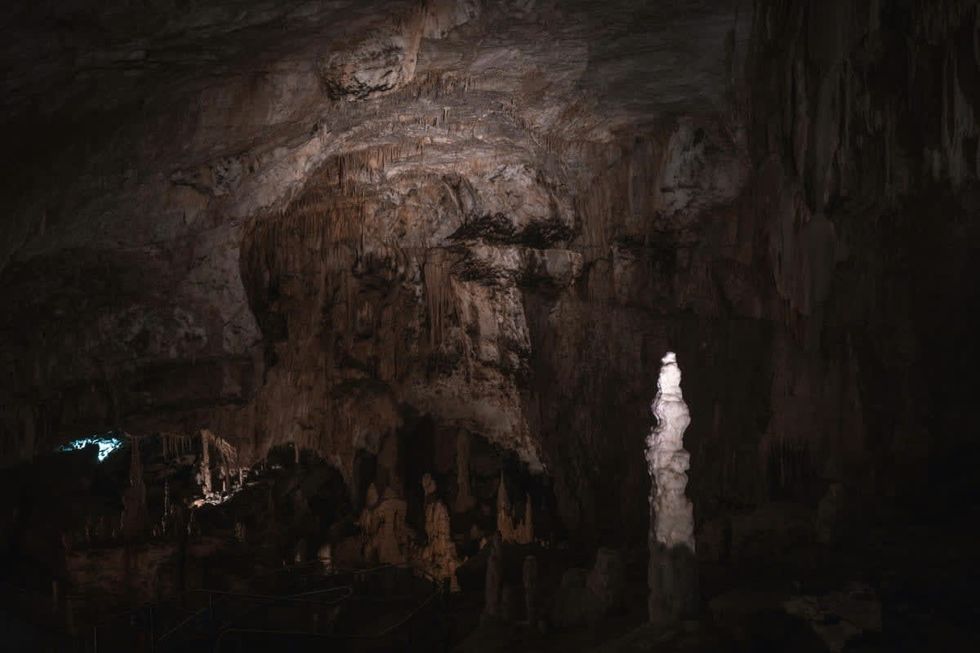 In the depths...Pexels | francesco ungaro
In the depths...Pexels | francesco ungaro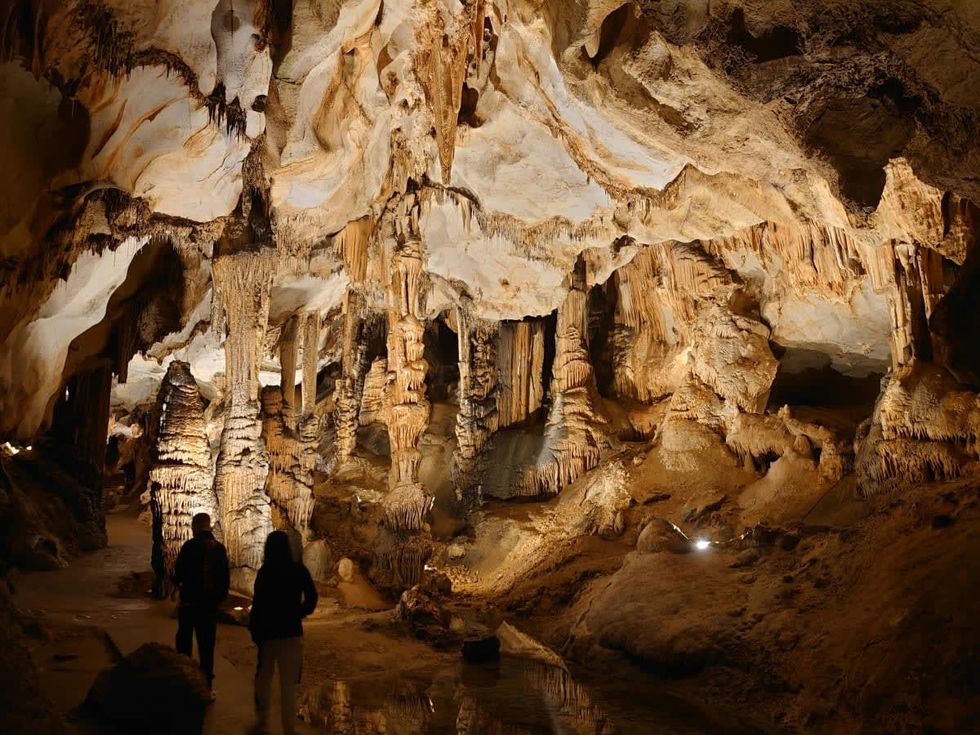 Hope the lights stay on. Pexels | parfait fongang
Hope the lights stay on. Pexels | parfait fongang "That was beyond crazy..." YouTube |
"That was beyond crazy..." YouTube |  "This is the stuff of my nightmares..."YouTube |
"This is the stuff of my nightmares..."YouTube |  "Totally blown away..." YouTube |
"Totally blown away..." YouTube | 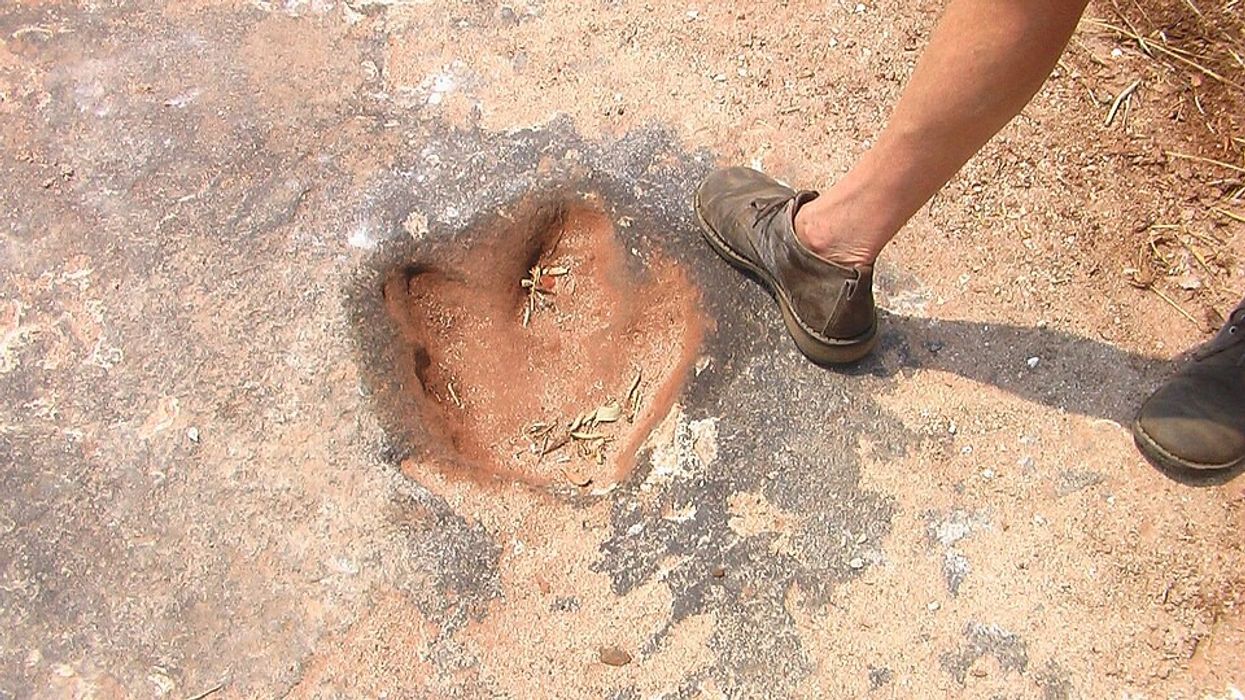
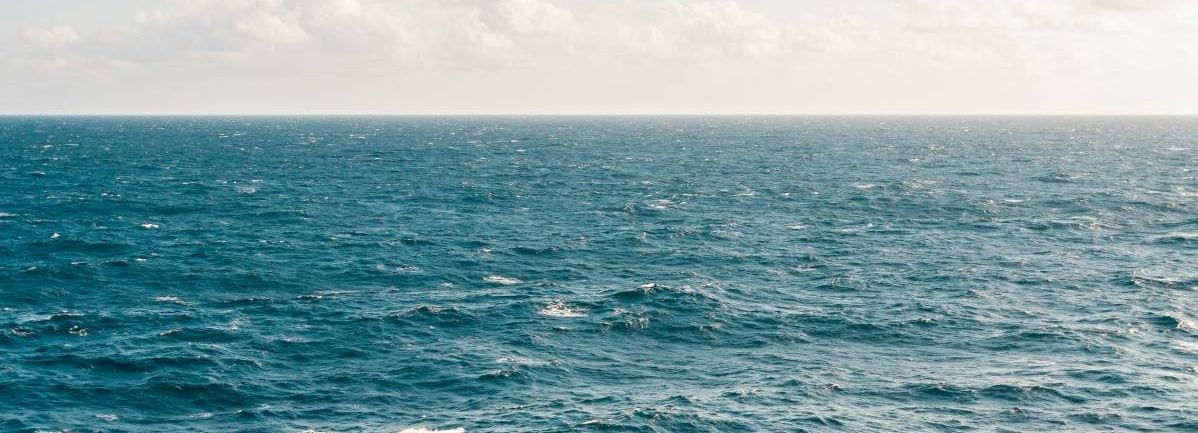 A representative Image of The Atlantic Ocean. Source: Pexels | Kellie Churchman
A representative Image of The Atlantic Ocean. Source: Pexels | Kellie Churchman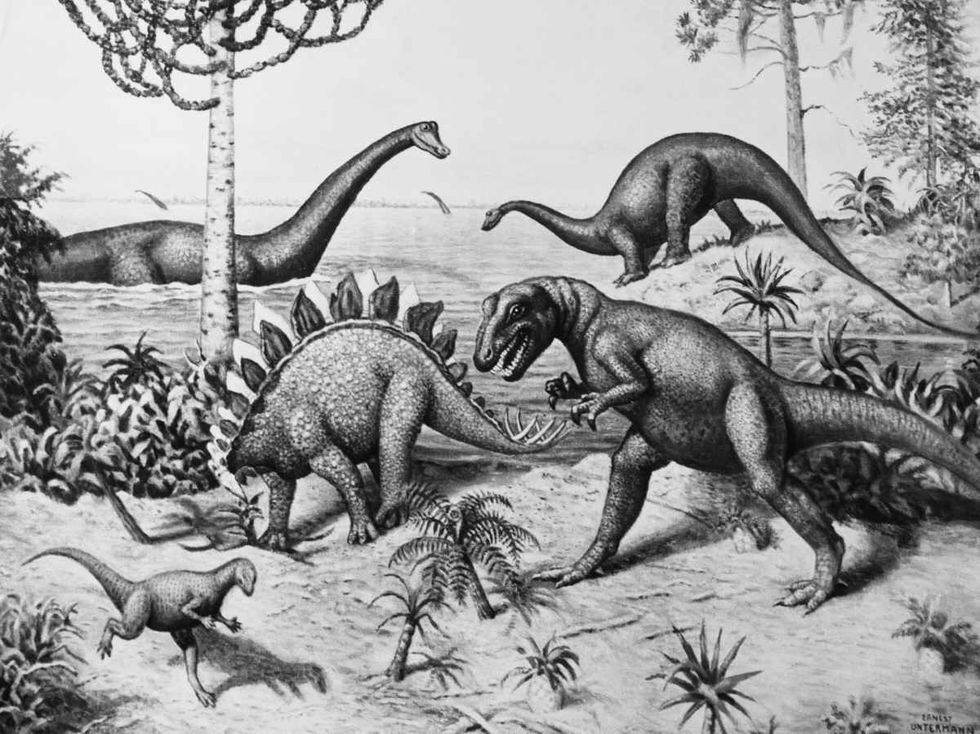 Representative Image Source: Painting from a series by Ernest Untermann in the museum at Dinosaur National Monument, Utah.
Representative Image Source: Painting from a series by Ernest Untermann in the museum at Dinosaur National Monument, Utah.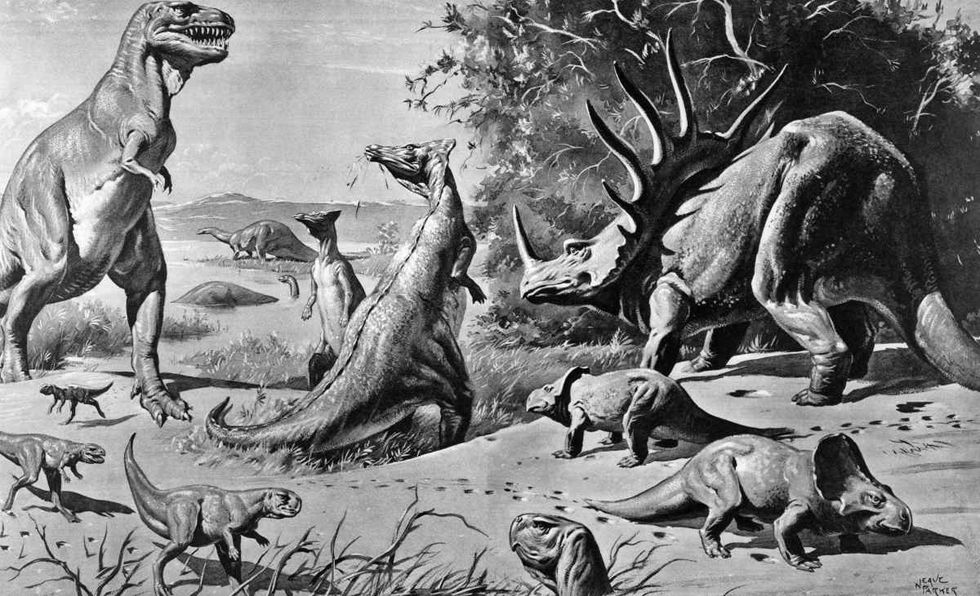 Representative Image Source: VARIOUS DINOSAURS IN GOBI DESERT. Photo by H. Armstrong Roberts/ClassicStock/Getty Images
Representative Image Source: VARIOUS DINOSAURS IN GOBI DESERT. Photo by H. Armstrong Roberts/ClassicStock/Getty Images
President Donald J. Trump and photo of a forest.
Public united and adamantly opposes Trump’s plan to roll back the Roadless Rule
There doesn't seem to be much agreement happening in the U.S. right now. Differing moral belief systems, economic disparity, and political divide have made a country with so many positives sometimes feel a little lost. Everyone desperately seeks a niche, a connection, or a strong sense of community to which they can feel a "part of," rather than just "apart."
But there seems to be one thing that the country strongly unites over, and that's the "Roadless Rule." With the Trump Administration attempting to roll back conservation policies that protect U.S. National Forests, Americans are saying in harmony an emphatic "No." A nonpartisan conservation and advocacy organization, the Center for Western Priorities, reviewed a comment analysis on the subject. After receiving 223,862 submissions, a staggering 99 percent are opposed to the president's plan of repeal.
What is the 'Roadless Rule' policy implemented in 2001?
The Roadless Rule has a direct impact on nearly 60 million acres of national forests and grasslands. According to the U.S. Department of Agriculture, the rule prohibits road construction and timber harvests. Enacted in 2001, it is a conservation rule that protects some of the least developed portions of our forests. It's considered to be one of the most important conservation wins in U.S. history.
America's national forests and grasslands are diverse ecosystems, timeless landscapes, and living treasures. They sustain the country with clean water and the wood products necessary to build our communities. The National Parks protected under their umbrella offer incredible recreational retreats and outdoor adventure.
Why does the administration want to roll it back?
U.S. Secretary of Agriculture Brooke L. Rollins told the Department of Agriculture in a 2025 press release, “We are one step closer to common sense management of our national forest lands. Today marks a critical step forward in President Trump’s commitment to restoring local decision-making to federal land managers to empower them to do what’s necessary to protect America’s forests and communities from devastating destruction from fires." Rollins continued, “This administration is dedicated to removing burdensome, outdated, one-size-fits-all regulations that not only put people and livelihoods at risk but also stifle economic growth in rural America. It is vital that we properly manage our federal lands to create healthy, resilient, and productive forests for generations to come. We look forward to hearing directly from the people and communities we serve as we work together to implement productive and commonsense policy for forest land management.”
Forest Service Chief Tom Schultz explained the Roadless Rule frustrated land management and acts as a challenging barrier to action. It prohibits road construction needed to navigate wildfire suppression and properly maintain the forest. Schultz said, “The forests we know today are not the same as the forests of 2001. They are dangerously overstocked and increasingly threatened by drought, mortality, insect-borne disease, and wildfire. It’s time to return land management decisions where they belong – with local Forest Service experts who best understand their forests and communities."
Why are people adamantly opposed to the proposed rollback?
A 2025 article in Earthjustice, a nonprofit environmental law organization, expressed its concern over the protection of national forests covering 36 states and Puerto Rico. A rescinded rule allows increased logging, extractive development, and oil and gas drilling in previously undisturbed backcountry. Here is what some community leaders had to say about it:
President Gloria Burns, Ketchikan Indian Community, said, "You cannot separate us from the land. We depend on Congress to update the outdated and predatory, antiquated laws that allow other countries and outside sources to extract our resource wealth. This is an attack on Tribes and our people who depend on the land to eat. The federal government must act and provide us the safeguards we need or leave our home roadless. We are not willing to risk the destruction of our homelands when no effort has been made to ensure our future is the one our ancestors envisioned for us. Without our lungs (the Tongass) we cannot breathe life into our future generations.”
Linda Behnken, executive director of the Alaska Longline Fishermen’s Association, stated, "Roadbuilding damaged salmon streams in the past — with 240 miles of salmon habitat still blocked by failed road culverts. The Roadless Rule protects our fishing economy and more than 10,000 jobs provided by commercial fishing in Southeast Alaska.”
The Sierra Club's Forest Campaign Manager Alex Craven seemed quite upset, saying, "The Forest Service followed sound science, economic common sense, and overwhelming public support when they adopted such an important and visionary policy more than 20 years ago. Donald Trump is making it crystal clear he is willing to pollute our clean air and drinking water, destroy prized habitat for species, and even increase the risk of devastating wildfires, if it means padding the bottom lines of timber and mining companies.”
The 2025 recession proposal would apply to nearly 45 million acres of the national forests. With so many people writing in opposition to the consensus, the public has determined they don't want it to happen.
Tongass National Forest is at the center of the Trump administration's intention to roll back the 2001 Roadless Rule. You can watch an Alaska Nature Documentary about the wild salmon of Tongass National Forrest here:
- YouTube www.youtube.com
The simple truth is we elect our public officials to make decisions. The hope is they do this for all of our well-being, although often it seems they do not. Even though we don't have much power to control what government officials do, voicing our opinions strongly enough often forces them to alter their present course of action. With a unanimous public voice saying, "No!" maybe this time they will course correct as the public wishes.